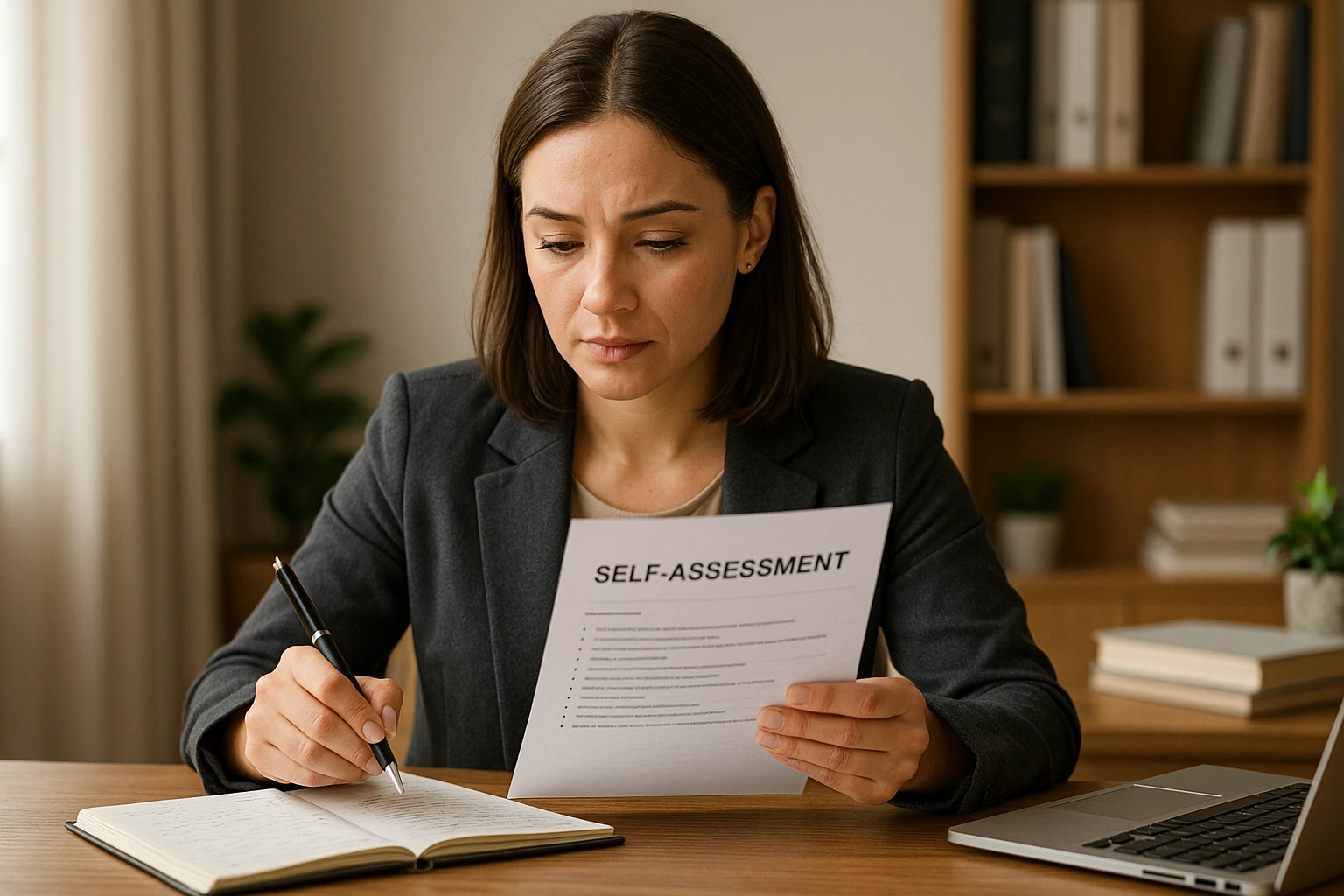Self-assessment is one of the most powerful tools for professional development. It allows you to take a clear, honest look at your skills, values, strengths, and weaknesses—so you can make smarter decisions about your career path. Here’s how to use self-assessment effectively to fuel your growth.
What Is Self-Assessment?
Self-assessment is the process of evaluating yourself to understand:
- What you’re good at
- Where you need to improve
- What motivates you
- What kind of work environment suits you
- How your skills align with your goals
It’s not about being overly critical—it’s about being self-aware.
Why Self-Assessment Matters
Professionals who regularly assess themselves are better at:
- Identifying opportunities for growth
- Choosing roles and projects that match their strengths
- Setting realistic and meaningful goals
- Navigating career transitions
- Increasing self-confidence and motivation
Self-assessment helps you take control of your development instead of waiting for others to guide it.
Reflect on Your Strengths
Start by asking:
- What do I consistently do well at work?
- What tasks or projects energize me?
- What compliments have I received from colleagues or managers?
Knowing your strengths helps you choose roles and tasks where you can shine. It also helps you build a strong personal brand.
Identify Your Weaknesses
This can be uncomfortable but is essential. Ask yourself:
- Where do I struggle the most?
- What feedback have I received repeatedly?
- What tasks do I tend to avoid or procrastinate?
The goal isn’t to feel bad—it’s to identify areas for improvement so you can grow strategically.
Assess Your Skills
Make a list of your hard and soft skills. Then, categorize them into:
- Skills I’ve mastered
- Skills I’m developing
- Skills I need to learn
This helps you build a learning plan that aligns with your career goals.
Evaluate Your Values and Interests
Your career should align with what you care about. Consider:
- What kind of work brings me joy?
- What values do I want reflected in my job or company?
- Do I prefer working independently or in a team?
- Do I enjoy structure, or do I thrive on flexibility?
When your career aligns with your values and interests, you’re more engaged and fulfilled.
Use Self-Assessment Tools
There are many tools that can help, such as:
- StrengthsFinder – identifies your core talents
- MBTI or 16Personalities – gives insight into personality preferences
- DISC Assessment – focuses on behavior and communication style
- CareerExplorer or O*NET – matches your traits to potential career paths
These tools aren’t perfect, but they can offer valuable insights.
Ask for Feedback
Self-assessment should be balanced with external input. Ask mentors, coworkers, or managers:
- How do you see my strengths?
- Where do you think I could improve?
- What role do you think fits me best?
Others can often see patterns we miss.
Set Actionable Goals Based on Insights
Use your assessment to set SMART goals that match your development needs. For example:
- “Improve my public speaking by attending a presentation workshop next month.”
- “Learn Excel macros within the next six weeks to improve task automation.”
- “Take on a leadership role in the next team project.”
Each goal should move you closer to your ideal professional self.
Reassess Regularly
Self-assessment isn’t a one-time exercise. Make it a habit to check in with yourself:
- At the end of each quarter
- After completing a major project
- When considering a career change
Your goals, interests, and skills will evolve—keep your development plan updated.
Final Thoughts on Self-Assessment
Career growth starts with self-awareness. By regularly assessing your strengths, weaknesses, skills, and values, you gain clarity on where you are and where you want to go. It’s a powerful habit that helps you stay focused, purposeful, and ready to seize new opportunities as they arise.

